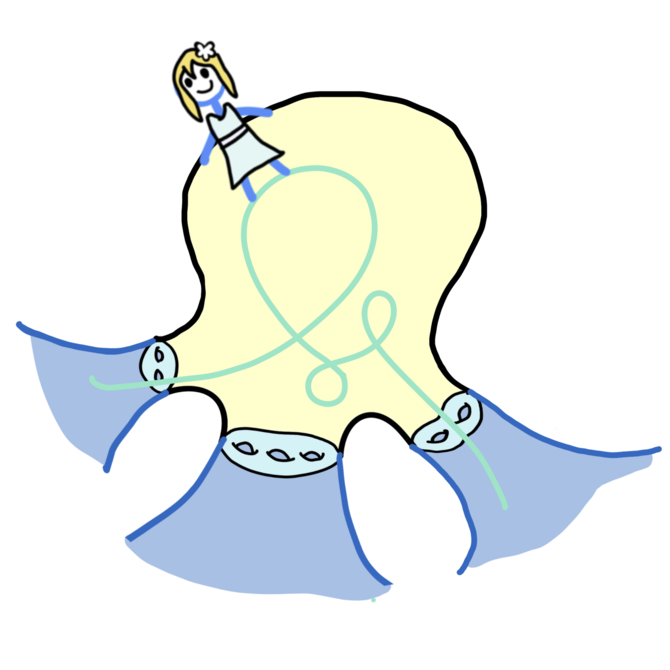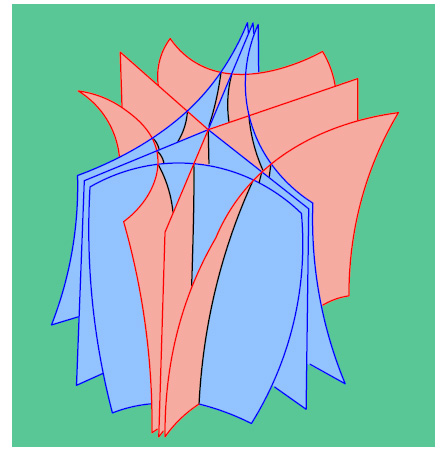-
Program Complementary Program 2025-26
The Complementary Program has a limited number of memberships that are open to mathematicians whose interests are not closely related to the core programs; special consideration is given to mathematicians who are partners of an invited member of a core program.
Updated on Dec 03, 2024 03:13 PM PST -
Program Geometry and Dynamics for Discrete Subgroups of Higher Rank Lie Groups
Organizers: Martin Bridgeman (Boston College), LEAD Richard Canary (University of Michigan), Amir Mohammadi (University of California, Berkeley), LEAD Hee Oh (Yale University), Maria Beatrice Pozzetti (Università di Bologna), Jean-François Quint (CNRS - Université de Montpellier) <p>This figure depicts dynamics of flows on convex cocompact hyperbolic 3-manifolds; where the girl is a traveller along a horocycle.</p>
<p>This figure depicts dynamics of flows on convex cocompact hyperbolic 3-manifolds; where the girl is a traveller along a horocycle.</p>This research program will bring together two intellectual communities that have made significant advances in the study of discrete subgroups of higher rank semisimple Lie groups: the homogeneous dynamics community and the community studying geometric structures and Anosov groups.
Updated on Nov 21, 2025 03:13 PM PST -
Program Topological and Geometric Structures in Low Dimensions
Organizers: Ian Agol (University of California, Berkeley), Kenneth Bromberg (University of Utah), Sebastian Hensel (LMU München), Christopher Leininger (Rice University), Kathryn Mann (Cornell University), LEAD Yair Minsky (Yale University), Rachel Roberts (Washington University in St. Louis) The stable and unstable foliations near a singular orbit of a pseudo- Anosov flow in 3 dimensions. Courtesy Michael Landry.
The stable and unstable foliations near a singular orbit of a pseudo- Anosov flow in 3 dimensions. Courtesy Michael Landry.Low dimensional topology is a meeting place for many objects and ideas from diverse areas of mathematics, including foliation theory, geometry, and smooth and conformal dynamics. For instance, many foliations on 3-manifolds admit transverse flows, connecting (local) leafwise homeomorphisms to flow dynamics and the mapping class groups of the leaves. Leafwise conformal or hyperbolic structures can be approached through Teichmüller theory, and connect again to one-dimensional dynamics through "universal circles" organizing compactifications of all the leaves or of the flow space. Many of these ideas originate in work of Thurston but in recent years have diverged and are ripe for reconnection.
The program will bring together experts in all these fields together with younger researchers, who together can form new connections and open new areas for exploration.Updated on Dec 19, 2025 03:19 PM PST -
Seminar Limit sets of degenerate surface subgroups
Updated on Feb 25, 2026 09:42 AM PST -
Seminar Reading Group: Surface homeomorphism group and fine curve graph
Updated on Feb 27, 2026 03:16 PM PST -
Seminar Superrigidity Seminar
Updated on Feb 12, 2026 08:23 AM PST -
Seminar Reading group on sutured manifolds and taut foliations
Updated on Feb 20, 2026 03:43 PM PST -
Seminar Computation in geometric topology: Testing the cosmetic surgery conjecture
Updated on Feb 27, 2026 01:00 PM PST
|
|
Current Scientific Events |